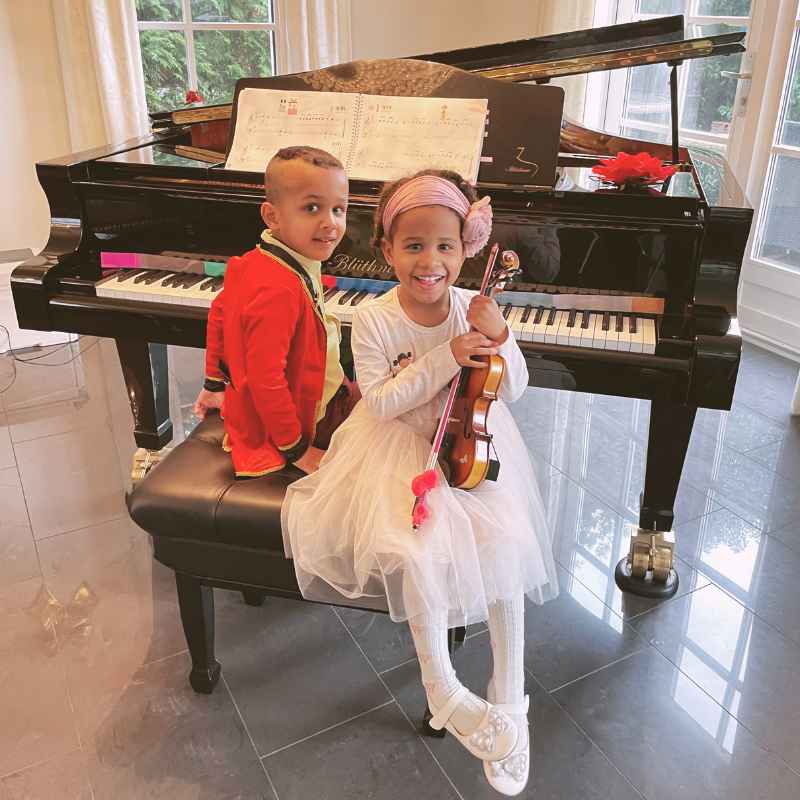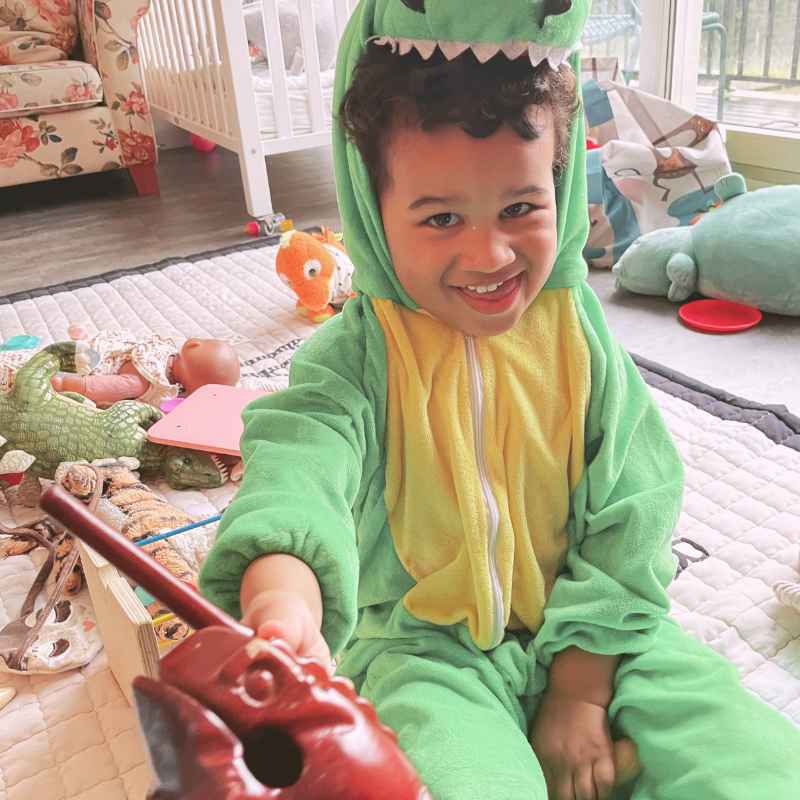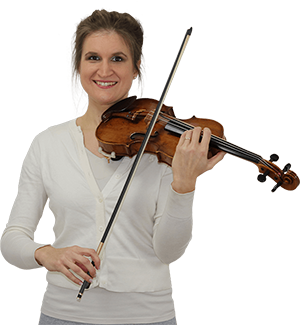Do well-behaved children make music or does music make well-behaved children?
How music lessons can help children better regulate their nervous systems, so they can thrive in life
In my lessons I notice that in the safe environment of a music lesson and in a playful way children learn to anticipate, grow patience, take turns, work together, overcome difficulties, gain confidence and process the emotions around that, so they develop the skills to tackle challenges in ‘real life’.
While sometimes we’re focussed on how music lessons improve IQ scores and academic results, I’d love to dive into the impact of music education on the more ‘softer’ skills and development of the person and overall behavior.
What’s a well-behaved child anyway?
Before we discuss if music education can help your child regulate herself better, let’s get on the same page what we mean by ‘well-behaved’.
What’s expected of children depends on lots of factors. Imagine being in a restaurant and a child is screaming and throwing food. Is this child behaving badly? When this child is eight months old your judgment might differ from when this child would be five years old… or twelve. My husband is from Togo and I’m half Czech and half Dutch myself. Behavior that would be perfectly acceptable in Holland (for example interrupting an adult to say something) is absolutely unacceptable in Togo. In a playground different behavior is expected than in a church.
Depending on where we come from and what the circumstances are, you and I might have very different ideas about what a well-behaved child makes. However, to function and thrive in a social environment, a child needs to develop the following:
- Sense of safety
- Attention span (concentration and focus)
- Inhibition control (including impulse control)
- Skill of resolving cognitive and emotional conflict
Let’s take a look if music lessons can improve these skills.
Sense of safety
A lot of ‘bad’ behavior comes from a child not feeling safe enough to be able to regulate their nervous system. An overly-compliant child might seem easy, but emotionally they could be in a bad scary place which obviously we don’t want for the child and is problematic in the future. To thrive, grow and develop, a child needs to feel safe and connected.
Songs help a child feel part of family or tribe and it is the language that soothes them to sleep.
Music is the first language of safety, security and love
Growing up with music from birth (and before) lays the foundation for a child to develop all the skills that we will discuss later in this article.
A stressed or scared child generally doesn’t behave and develop well. This lack of connection and security can fundamentally affect a child’s cognitive development.
Making music through singing increases some brain chemicals like dopamine and reduces cortisol (a stress hormone). Music does this incredibly quickly and almost acts like a circuit breaker for the production of cortisol in our bodies.
There are incredible positive changes on the behavior and academic results of children in schools located in socio-economic challenging neighborhoods if a music program is introduced. Music won’t solve all their problems obviously, but can ‘fix’ some of the delay and difference in neural development these children might have had from birth.
Attention span
‘Why can’t you just pay attention?’
Not paying attention can come across as rude behavior. Certainly at a young age in most cases this is not deliberate disrespect, but a lack of concentration skill.
Being able to concentrate is a skill that develops over time and is, to a great extent, a learned one. Like many skills we learn through modeling by people around us, direct instructions (‘listen up’) and our own predisposition.
How does music learning help? Instructed and sequential music learning activities in early childhood are basically a bootcamp for the development of young children’s attention skills.
A three-minute music learning activity will engage multiple senses. It might involve a child moving his body while listening to a song or beat, watching out for when the song stops and then performing a new movement like turning around.
Music activities require hyper attention across multiple senses, following varied instructions without any warning while working within a group and couched as a game so the child is having fun and stays engaged.
In a Colourstrings kindergarten music class this happens with babies and toddlers. Every few minutes there’s a new activity, a new prop, a new movement and a new song. This rapid change is great for attention development, because the child has to adjust her attention to a new activity, new expectations, new movement, and a new set of concepts to watch out for. At the surface this might look like ‘just’ play, but under the surface the little kid’s brains are doing a full workout.
A bit on ‘just play’: Developmentally appropriate play with parents and peers is a singular opportunity to promote the social-emotional, cognitive, language, and self-regulation skills that build executive function and a prosocial brain. Play is how kids learn and develop.
Besides that we can learn the skill of concentration, it’s also nature. Some kids just can’t help their attention floating away. My four year old boy/girl twins are very different despite having about the same nurture. My son sits behind his piano many moments throughout the day and finds joy in focussing hard to learn a new difficult song. My daughter plays violin, but I can see that her brain just gets tired after focusing for even a few minutes. Certainly when things are difficult, she wants to avoid them. By mixing their instrumental learning with Colourstrings music learning, I train her musicianship and her attention skills, which will help her learn a complex instrument like the violin (or anything).

Inhibition control
Controlling reactions and interacting positively with others around you can be a challenge for young children. One of the skills that children need is inhibitory control, which helps inhibit the desire to go with a natural or habitual response. It helps a child maintain attention in a class, when they would rather pull someone’s ponytail.
Strong inhibitory control is developed through delayed gratification. This skill is more than just following the rules: It has a profound effect on children’s ability to make solid and positive friendships that could last a lifetime.
Music learning activities are a great tool to teach the ‘wait your turn’ skill. Watch any circle game and you will see children waiting their turn for what seems to them like an eternity. Flexing the ‘wait your turn’ muscle transfers to the ‘my turn to speak’ and ‘don’t strike out when you get angry’ muscle.
Musically trained children have been found to have particularly high inhibitory control
You can imagine that learning an instrument, including voice, takes lots of discipline. You have to get it wrong again and again before you get it right. Even then, you might get it right in your practice at home, but not be able to play it in your concert.
Inhibition control can be very helpful in the teenage years when handling emerging challenges such as taking calculated risks, managing stress effectively and avoiding addictions.
In a Colourstrings music kindergarten class children develop the skill of inhibitory control before they even start learning an instrument. They take turns returning the shakers and have to wait for their color. They have to wait for the teacher to sing their name in the ‘hello’ and ‘goodbye’ song before they respond. There are passing games where they have to wait for the interesting prop to come their way only to separate from it a wee moment later.

My third child found it very hard to share toys when he was two years old. This can be quite challenging in a family of seven. Doing singing games where a rose is passed or a guiro is played in turns trains his inhibition control to be able to accept the short disappointment when a toy goes away. (that and hiding his favorite dinos for his curious one year old sisters)
As simple as it sounds, keeping a beat is almost the perfect training ground for inhibitory control
Music is learned in groups, and groups provide positive peer pressure, meaning you keep going because you are in a group. Think of group fitness versus individual fitness: which one requires more effort to remain on task? Keeping a beat is a discipline, but after a while it becomes automatic, meaning we don’t use too much of our conscious brain to continue doing it.
In a Colourstrings music kindergarten class beat keeping is a theme throughout the whole lesson. First babies are tapped on the beat and bounced while listening to music. Later toddlers learn to keep the beat themselves with a shaker or while moving a lycra as a group.
Developing inhibition control not only positively impacts behavior, but transfers to overall intelligence. Through music learning children improve executive function abilities and planning, which transfer to improved academic results.
Resolving cognitive and emotional conflict
The music rehearsal and performance environment is a perfect place to help children form multiple ideas of what contribution might look like to the musical team. For playing in an orchestra a big set of executive functions is needed, one of which is the skill of resolving cognitive and emotional conflict. In simple words this is ‘think before you speak’. For example when you want to give someone your honest take about something from a place of emotion, but you’re aware that this might not get the reaction you want and hold your tongue.
In early childhood there might be no rehearsals yet, but there’s waiting your turn to play a very interesting percussion instrument. The child might want to have it earlier and grab it, but needs to control herself and wait for her turn. In passing games the child might not want to pass on the prop and keep it to herself and take it home. However, the child needs to control this urge and pass it on to the next child.
Music is teamwork
When my four year old son knows a piece well, he likes to challenge himself to play it faster and faster. I can’t blame him as even some adult concert pianists think this way, haha! However, when he plays together with his violin playing twin sister, he has to play really sloooooowly. A simple melody isn’t that easily played on the violin as it is on the piano (not at all to say piano is easier overall). His emotional urge might be to rush, however his cognitive response is to listen to and follow his sister.
It’s getting harder…
In today’s world it’s getting harder and harder to develop skills of attention span and inhibition control. Technology made many wonderful things possible and has definitely improved our lives. However, with screens all over the place, attention is difficult even for adults. With everything under a button, delayed gratification is less challenged.
How many times have you looked at your phone notifications while reading this article? (I’m not assuming anything, don’t worry, I just know myself)
Our world has never been as noisy as it is now
From birth (and before) children learn to absorb sounds and distinguish their elements. This is how we learn to understand language, to speak and to eventually read and write. In school we first learn to read and then read to learn.
The environmental noise our auditory processing network has to continually process is far beyond what it was built for. Consequently, the ability to pay attention or maintain our attentional control on what we want or need to focus on is getting harder.
Some people complain about how today’s children behave. Isn’t there more than ‘failing’ modern pedagogy? What if it’s just a lot harder these days to develop the skills needed to behave well and regulate one’s nervous system?
We are often asking our children’s brains to learn even more than we did in school while, often unwittingly, placing even more auditory distractions around them. Unfortunately, at the same time, in many school settings children are getting not more but less access to the very activity that hones their auditory processing network: music learning!
Start young!
In order for your child to thrive in a world filled with noise, we should start music lessons at the same age we start the noise… from birth!
For the best cognitive benefits of music education one can best start before the age of seven
Of course one can benefit from music at any age, but if your young child can experience musical games, sound-to-symbol activities and moving to music just once a week, you’re way ahead. Music learning before the age of seven helps with auditory, visual and motor cortices’ connectivity and helps the brain’s hemispheres and cerebellum communicate through corpus callosum (helps the left and right half of the brain transfer information).
Besides starting before seven years old, the recipe for permanent positive brain development also includes:

- Singing, moving and playing an instrument outside our bodies
- Learning in both individual and group environment
- Age-appropriate music notation reading
- Performance
- Formal, sequential and expertly led classes
Music learning enhances our executive function skills, so we can problem-solve, manage stress, communicate effectively (even without words) and grow into the best version of ourselves. Making music together encourages us to be emphatic, kind and productive. How’s that for a definition of well-behaved?

Hi! I'm Zlata
Classical violinist helping you overcome technical struggles and play with feeling by improving your bow technique.
Please make music for music
Take music lessons to learn music and develop musicianship. A math teacher never has to explain what wonderful side effects math lessons have (and there are many, prompts my mathematician husband at the kitchen table). In the first place you learn math to calculate stuff, not to get better at analyzing Bach fugues. Math classes aren’t just reserved for those expected to be excellent mathematicians in the future. No, we think each child benefits from math, even if they’re not talented (or especially).
In the same way you can take music lessons for the purpose of music. In my opinion we sometimes tend to focus too much on the side effects of music lessons like they have no inherent value. Learning a child to enjoy, make and appreciate music is a very enriching and precious gift in and of itself that they can enjoy for their entire life.
Interested to become an early years music teacher?
I wrote this article as part of my Colourstrings early years music teacher training, which is why I mentioned the method a couple of times. If you’re looking to become a certified Colourstrings early years music teacher, check them out here. I can highly recommend their training.
Sources
Raising Kids with Big, Baffling Behaviors: Brain-Body-Sensory Strategies That Really Work – Robyn Gobbel
The Music Advantage: How Music Helps Your Child Develop, Learn, and Thrive – Anita Collins
The Power of Play: A Pediatric Role in Enhancing Development in Young Children

0 Comments